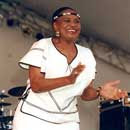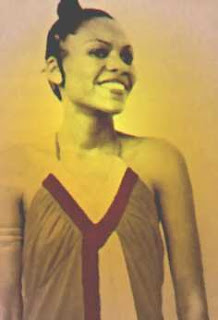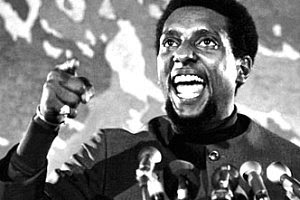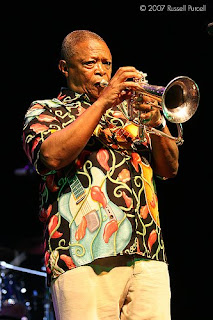



 Daughter
Daughter  Bongi
Bongi
 Husband #2 Black Panther, Stokely Carmichael
Husband #2 Black Panther, Stokely Carmichael





Husband numero uno, Trumpeter Hugh Masekela

My father was good at hoarding old magazines and newspapers in neat piles— testimony to his affectation to erudition. Going through these piles in my own early ravenous quest for knowledge, I vaguely remember the pictures of this beautiful African woman with hair closely cropped and the heart-thawing smiles. She was my adolescent definition of beauty. She was the African singer from South Africa. She was Miriam Makeba, later dubbed Mama Afrika.
It was the dawn of post-independent Africa. While I was just learning English and could not grasp the nuances of what were being said in the magazines, I sensed the air of Pan-Africanism. So, when I heard Miriam Makeba on the radio I cocked my ears more keenly. One record that still rings very clearly even as I write now is that praising Mzee Jomo Kenyatta—Pole Mze. With the onset of teen age, Congolese, Swahili and our local Luganda pop music took over my attention. The folk song variety of Makeba soon disappeared from my consciousness as she herself disappeared from the lives of the ordinary Afrikan.
Her passing away last week-end brought floods of emotions, and I sought to connect to my adolescent pin-up girl—the emblem of the quintessential African beauty and grace. I immersed myself in connecting to her to understand her essence.
A lot has been said about Miriam Makeba—the stripping of her citizenship by the South African Boers to which the world responded by giving her nine different passports, the triumph of love over career in her marriage to Black Panther Stockely Carmichael, and the association with murderous African dictators. Would a political person marry a Black Panther at that time? She did and RCA yanked her record contract. What has love got to do with it?, she might have asked. Would a sensible artist associate with Togo’s Eyadéma, Guinea’s Sékou Touré and Cote d’Ivoire’s Houphouët-Boigny ? This was the time of the big-man Africa and Miriam Makeba played at the rallies of these dictators. To her it was giving—her music to the African people even in the midst of Afrikan predatory big cats.
Above all Miriam Makeba was just a little Afrikan girl who wanted to go home to her Mama in Sophia town and sing to her people. She curtseyed as if she was kneeling to her audience—that was and still is the practice in many Afrikan households. Politics was forced on her and she handled it with grace and equanimity. Thank you, Mama Afrika for adding your elixir of beauty and songs to my cup of joy and Afrikan pride.
It was the dawn of post-independent Africa. While I was just learning English and could not grasp the nuances of what were being said in the magazines, I sensed the air of Pan-Africanism. So, when I heard Miriam Makeba on the radio I cocked my ears more keenly. One record that still rings very clearly even as I write now is that praising Mzee Jomo Kenyatta—Pole Mze. With the onset of teen age, Congolese, Swahili and our local Luganda pop music took over my attention. The folk song variety of Makeba soon disappeared from my consciousness as she herself disappeared from the lives of the ordinary Afrikan.
Her passing away last week-end brought floods of emotions, and I sought to connect to my adolescent pin-up girl—the emblem of the quintessential African beauty and grace. I immersed myself in connecting to her to understand her essence.
A lot has been said about Miriam Makeba—the stripping of her citizenship by the South African Boers to which the world responded by giving her nine different passports, the triumph of love over career in her marriage to Black Panther Stockely Carmichael, and the association with murderous African dictators. Would a political person marry a Black Panther at that time? She did and RCA yanked her record contract. What has love got to do with it?, she might have asked. Would a sensible artist associate with Togo’s Eyadéma, Guinea’s Sékou Touré and Cote d’Ivoire’s Houphouët-Boigny ? This was the time of the big-man Africa and Miriam Makeba played at the rallies of these dictators. To her it was giving—her music to the African people even in the midst of Afrikan predatory big cats.
Above all Miriam Makeba was just a little Afrikan girl who wanted to go home to her Mama in Sophia town and sing to her people. She curtseyed as if she was kneeling to her audience—that was and still is the practice in many Afrikan households. Politics was forced on her and she handled it with grace and equanimity. Thank you, Mama Afrika for adding your elixir of beauty and songs to my cup of joy and Afrikan pride.
Mayibuye
MM at the UN


No comments:
Post a Comment